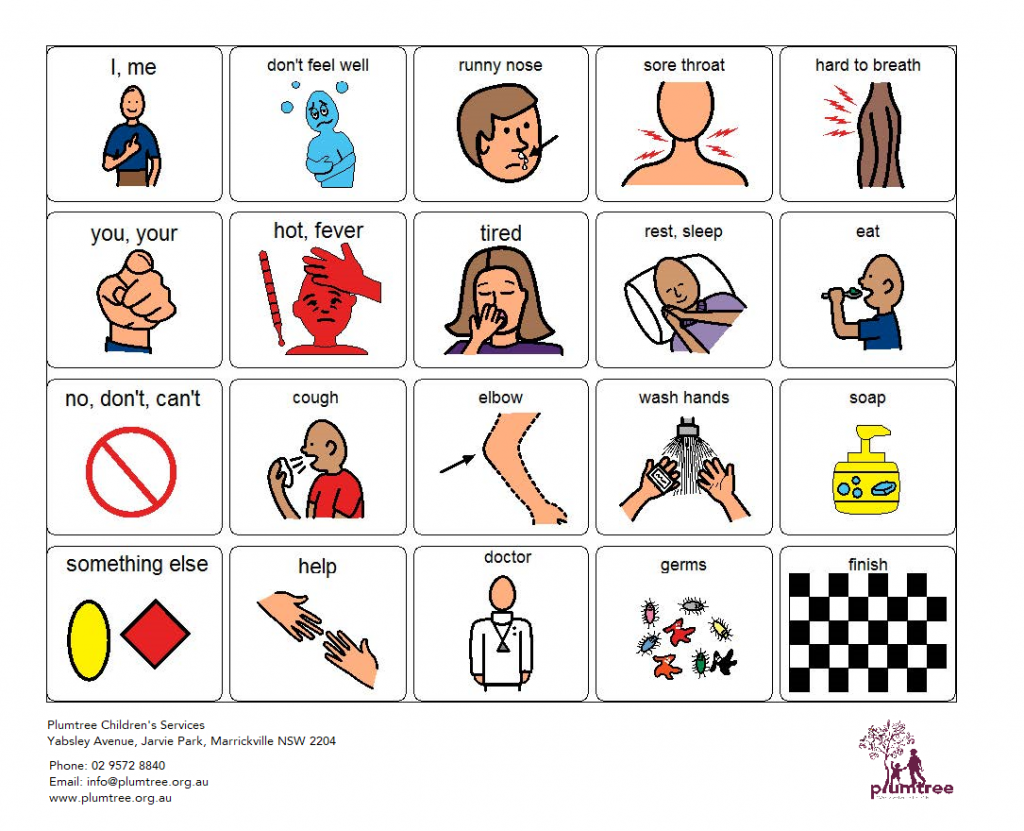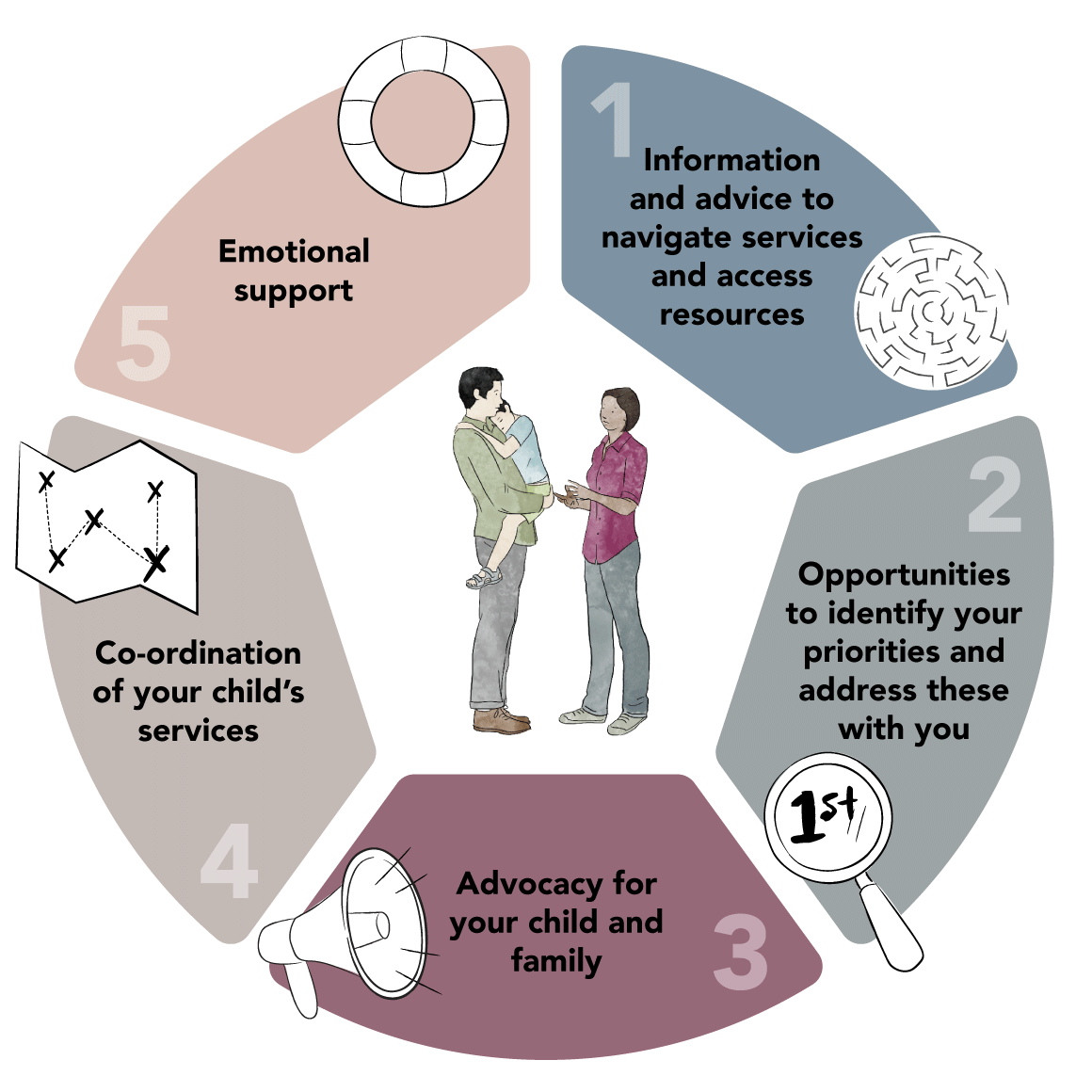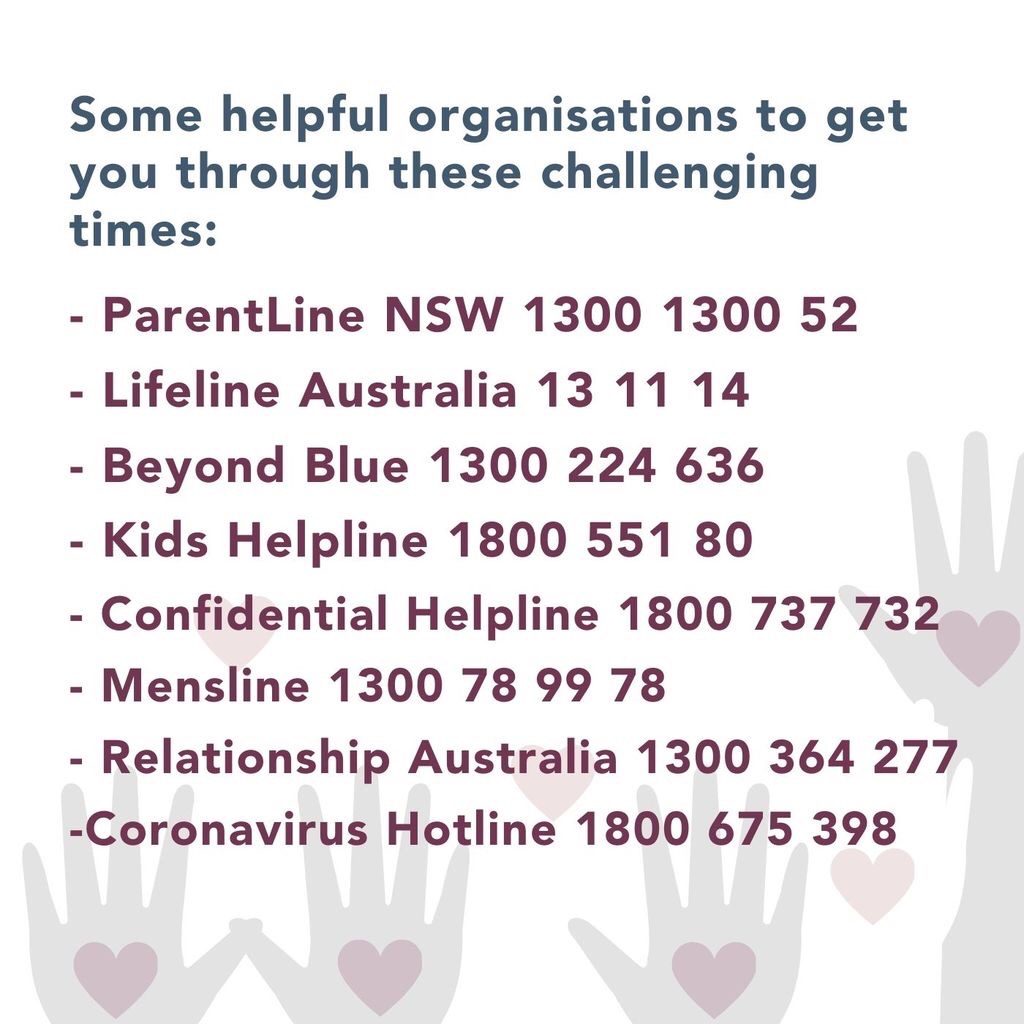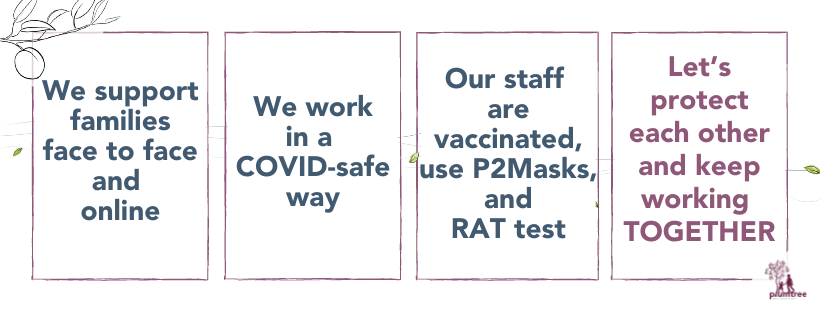Plumtree community health and wellbeing
Looking after yourself and your family during these challenging times.
Talking to children about sickness
It is expected that children will become aware of people’s concerns and anxiety over COVID-19. Talking to them about their worries and communication can ease their concern.
Our blog post Staying safe from germs can help parents explain sickness to non-verbal children and model how to communicate that they are feeling unwell. It also has downloadable resources.

To help reduce anxiety children may be experiencing, you can create opportunities to answer their questions in an honest, age-appropriate way by:
- speaking to them about coronavirus calmly
- asking what they already know about the virus so you can clarify any misunderstandings they may have
- letting them know that it is normal to be worried when new and stressful situations arise
- giving them a sense of control by explaining what they can do to stay safe, such as washing their hands regularly, staying away from people who are coughing or sneezing
- not overwhelming them with unnecessary information and limit media exposure, which can increase anxiety
- keeping regular contact by phone or video with people they love, such as grandparents, other family members and friends.
Looking after yourself and staying calm
With the country in lockdown and self-isolation rules, family life at home can become more stressful than usual. Our blog post Promoting calm communication with your child at busy times has tips for giving positive direction that can help children move through the day’s activities.
The amount of media coverage and information around COVID-19 can create anxiety, uncertainty and confusion. It is natural to feel overwhelmed and it’s important to know resources that help manage stress and prevent it from turning into more severe anxiety or panic.
The Australian Psychological Society has a great COVID-19 page with downloadable information sheets on coping with anxiety and maintaining mental health during social isolation and more.
Protecting yourself and staying up to date on COVID-19
The latest government COVID-19 updates can be found on NSW Health’s website, which has an extensive FAQ on topics including protecting yourself against the virus, home isolation and social distancing.
Multilingual resources in 24 languages are also available at SBS.
Staying connected from home
With self-isolation rules in place, it is important to stay connected with other children, families and relatives online via phone calls and video platforms such as Zoom or FaceTime.
Keep on learning together with us. Plumtree’s workshops and courses are all now online. See our Calendar for more information and visit our Facebook page for news and inspiration.
Remember that your Plumtree staff member also has key worker training. This means they can provide a broad range of support for you.

Two new parent-led organisations Reframing Disability and Reframing Autism can connect you with other parents and provide support.

Helpline, Mensline, Relationships Australia, Coronavirus Hotline
Support services
If you are feeling worried, anxious or need some support, here are some organisations that could help.
- Priority home delivery services for NDIS participants enables supermarket items to be delivered to their doorstep.
- Plumtree staff members can speak their Hub Leader, Supervisor, or Family Centred Practice Manager Cathy Webb.
- Staff and their family members can access free support and counselling through the Employee Assistance Program; details are on the Slack WHS channel.
What to do if you feel sick
For families, if you, or someone you know thinks they may have come into contact with someone with COVID-19, or test positive for the virus, please contact our Client Relationship Manager Elif Erdogan.
For staff members, please contact Corporate Services Manager Hajar Chami-Bach.
Staff and family members MUST stay home if they feel unwell with symptoms such as fever, cough, shortness of breath, chills, body aches, sore throat, runny nose, or muscle pain. Call your GP and seek medical advice. Also contact your team leader to keep them informed.
The National Coronavirus Helpline on 1800 020 080 can provide more information.
For urgent or life-threatening situations, call 000.








